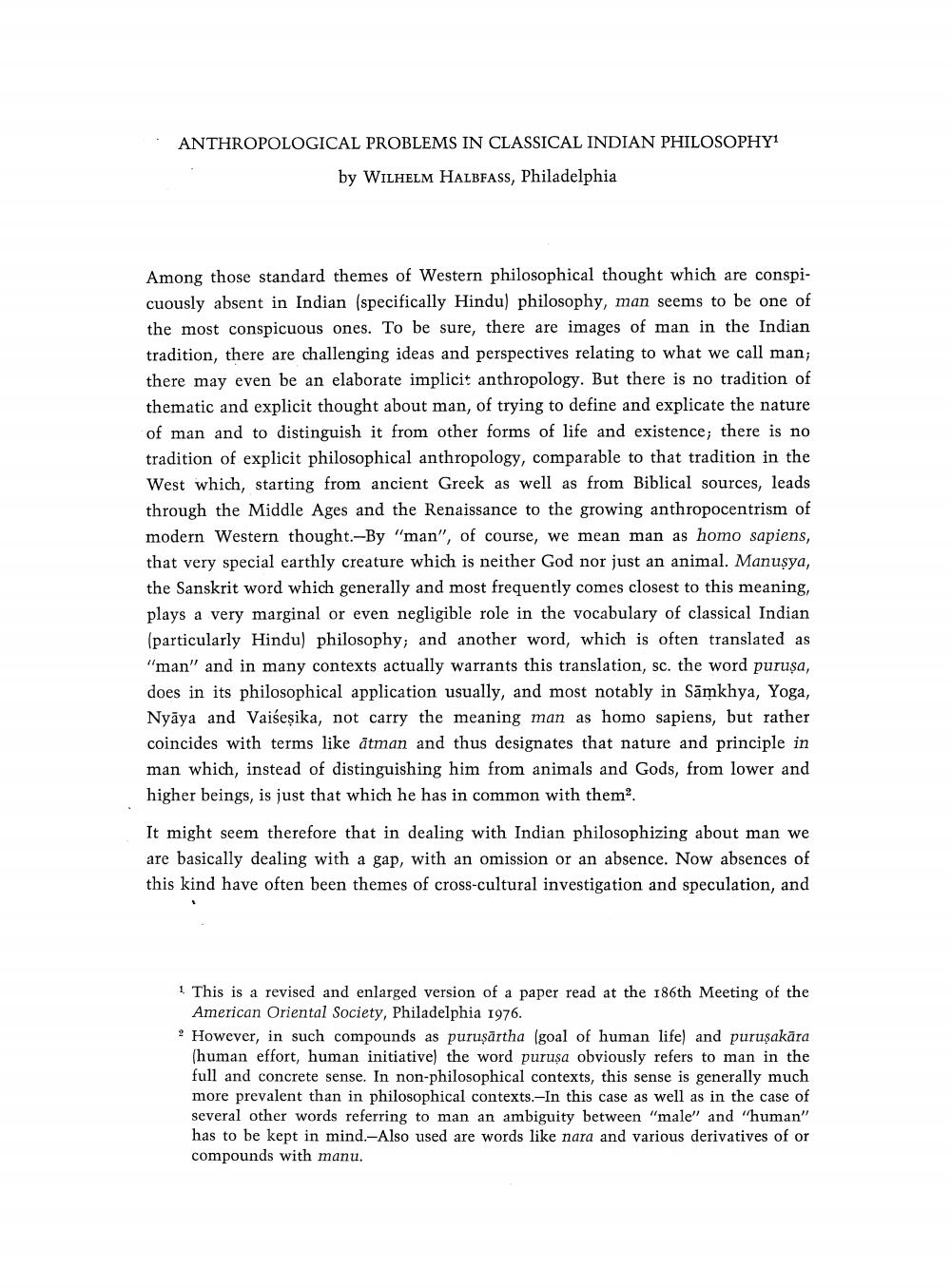Book Title: Anthropological Problems In Classical Indian Philosophy Author(s): Wilhelm Halbfass Publisher: Wilhelm Halbfass View full book textPage 1
________________ ANTHROPOLOGICAL PROBLEMS IN CLASSICAL INDIAN PHILOSOPHY by WILHELM HALBFAss, Philadelphia Among those standard themes of Western philosophical thought which are conspicuously absent in Indian (specifically Hindu) philosophy, man seems to be one of the most conspicuous ones. To be sure, there are images of man in the Indian tradition, there are challenging ideas and perspectives relating to what we call man; there may even be an elaborate implicit anthropology. But there is no tradition of thematic and explicit thought about man, of trying to define and explicate the nature of man and to distinguish it from other forms of life and existence; there is no tradition of explicit philosophical anthropology, comparable to that tradition in the West which, starting from ancient Greek as well as from Biblical sources, leads through the Middle Ages and the Renaissance to the growing anthropocentrism of modern Western thought.-By "man", of course, we mean man as homo sapiens, that very special earthly creature which is neither God nor just an animal. Manuşya, the Sanskrit word which generally and most frequently comes closest to this meaning, plays a very marginal or even negligible role in the vocabulary of classical Indian (particularly Hindu) philosophy; and another word, which is often translated as "man" and in many contexts actually warrants this translation, sc. the word puruşa, does in its philosophical application usually, and most notably in Sāmkhya, Yoga, Nyāya and Vaiseșika, not carry the meaning man as homo sapiens, but rather coincides with terms like ātman and thus designates that nature and principle in man which, instead of distinguishing him from animals and Gods, from lower and higher beings, is just that which he has in common with them. It might seem therefore that in dealing with Indian philosophizing about man we are basically dealing with a gap, with an omission or an absence. Now absences of this kind have often been themes of cross-cultural investigation and speculation, and 1 This is a revised and enlarged version of a paper read at the 186th Meeting of the American Oriental Society, Philadelphia 1976. 2 However, in such compounds as puruşārtha (goal of human life) and puruşakāra (human effort, human initiative) the word purusa obviously refers to man in the full and concrete sense. In non-philosophical contexts, this sense is generally much more prevalent than in philosophical contexts.-In this case as well as in the case of several other words referring to man an ambiguity between "male" and "human" has to be kept in mind.-Also used are words like nara and various derivatives of or compounds with manu.Page Navigation
1 2 3 4 5 6 7 8 9 10 11 12
